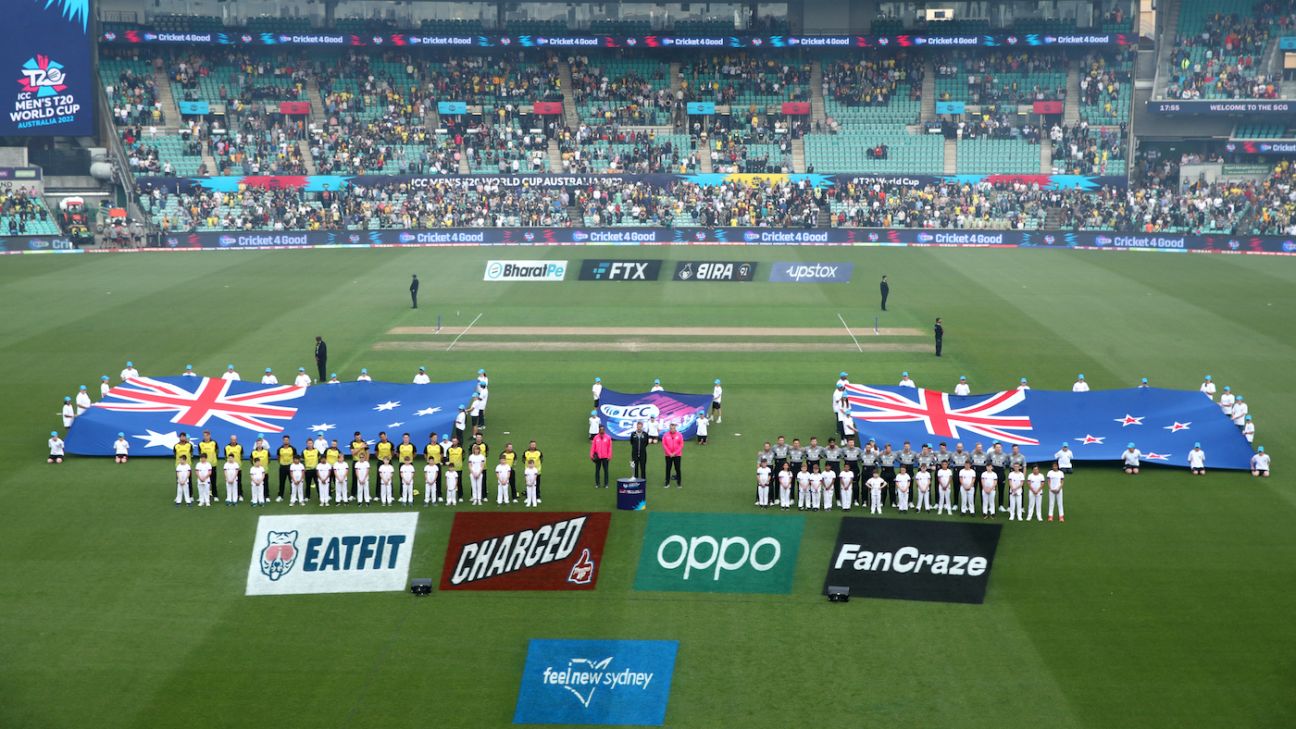Could Australia’s uphill battle against net run rate have been avoided?

Dhoni was of course happy with the win, but at the post-match presentation he admitted it wasn’t probably how he would have played. “I am a practical person,” Dhoni said. “So I was hoping in the dressing room that the quantum of the defeat wouldn’t be too big.”
As Dhoni said there, he is practical not defeatist. He knows the value of net run rate in tournament play. While people start to think of it only towards the end of the league stages, Dhoni has an eye on it even at the start of the tournament.
There is merit in disagreeing with how Dhoni thinks – in fact there is a running joke about net run rate every time CSK are struggling to score quickly – but you can’t deny that this becomes an even more pertinent thought in a brutal and short tournament such as the T20 World Cup. There are six teams in each group, two of whom come from a previous qualifying round, and only two eventually go through to the semi-final. Is there, then, merit in taking a step back if you lose early wickets in a stiff chase against one of the three favourite sides, so as to minimise the NRR damage?
In a bilateral T20I, there is no doubt this is the best way to play T20 cricket. In tournament play, especially in such a cut-throat format, there is room for second thoughts. That maybe you look to rebuild for a bit, play out the 20 overs, and if a late charge wins you the game, take it as a bonus. If you lose, at least you live to fight another day.
There have been moments where Australia could have perhaps made up for that damage early on in the tournament, but to completely eliminate a lower-order stand (the kind Ireland had against them) or a slow pitch that makes it difficult to get a big win is not easy.
“No, it is the New Zealand game,” Vettori said when asked if they had let other opportunities go. “Unfortunately those are the results in these short tournaments that can really affect you. And you see it in the IPL, you see it in the Hundred, you see it all the time, that one game that you let go can have such an effect on the tournament.
“No matter how well you play in in the following games, it can get away from you. There is always likelihood that there will be teams on the same number of points. It’s just that big loss that affects you so. How to mitigate that is the bigger issue rather than [try to] catch up in the other games.”
As it turned out, in their last group match, Australia found themselves on a slow surface on which it was difficult to force the pace and get the kind of run-rate boost that would put England under any kind of pressure. Also, Australia knew well before the tournament they wouldn’t be playing last, which comes with a massive advantage of knowing what exactly to get in terms of NRR in the last match. They will surely be looking more at the New Zealand match than tighter-than-expected wins against Ireland and Afghanistan.
As with any decision, choosing to play this way will have its own flip side. It can bring doubt, caginess, questions as to when exactly do you start playing for net run rate, but it is undeniable that some of the most successful brains in cricket think that way. And as Vettori said, it is not just hindsight.
Sidharth Monga is an assistant editor at ESPNcricinfo




